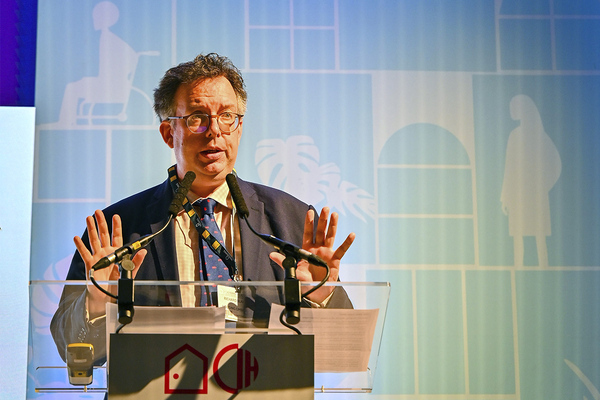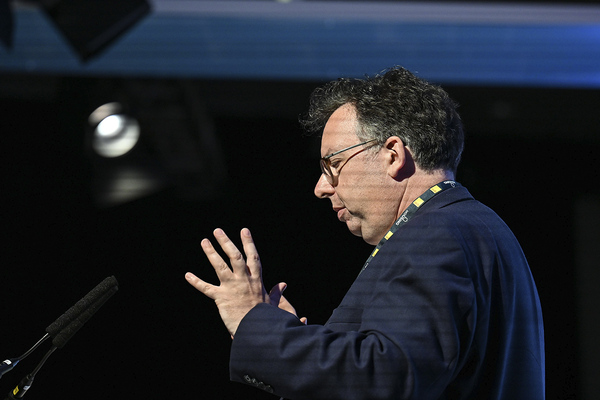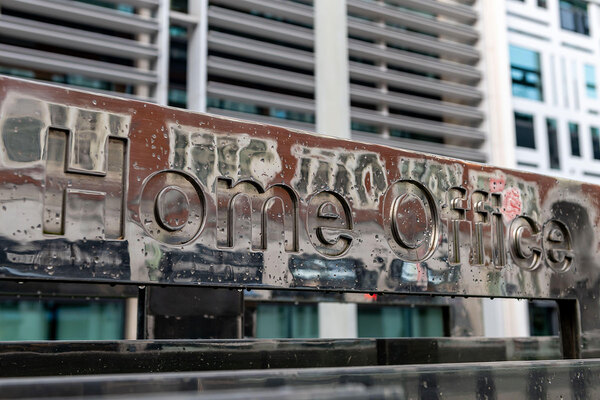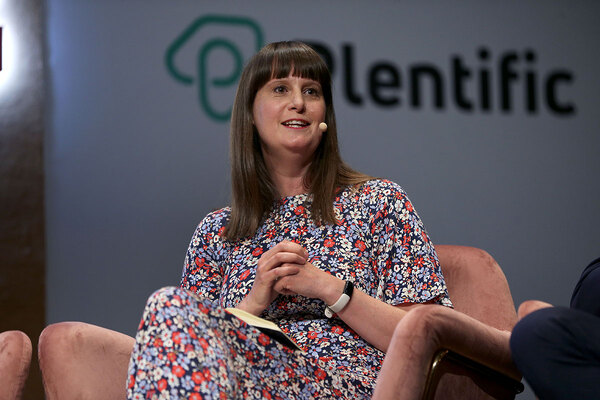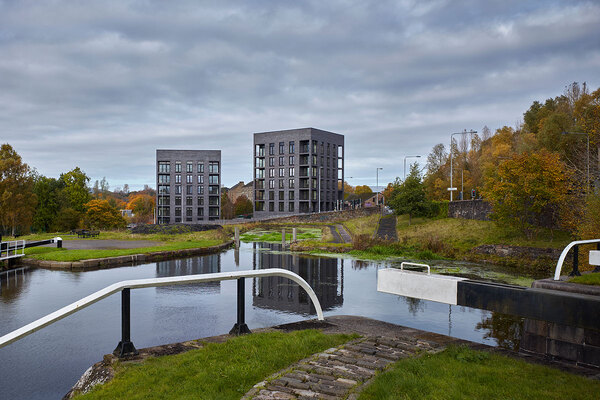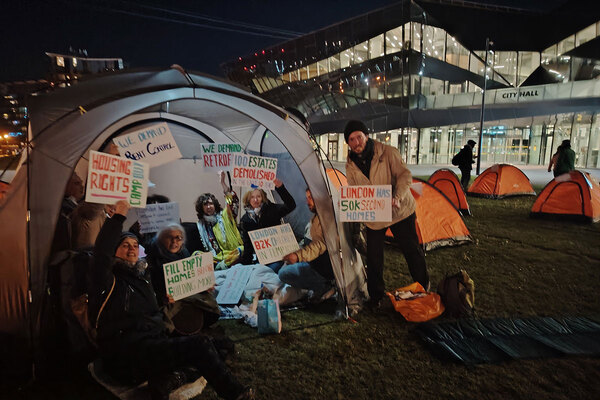You are viewing 1 of your 1 free articles
We want good practice to be a collaborative effort
Richard Blakeway explains what the Housing Ombudsman is hoping to achieve with its ‘good practice’ powers
Proactive consumer regulation has begun and the Complaint Handling Code is statutory, but there are still building blocks from the post-Grenfell regulatory landscape to come. This includes ‘good practice’, which the ombudsman now has the statutory power to issue, and we are currently consulting on. This piece explains what we hope to achieve with this power and how it can support landlords.
It has been a cornerstone of work to identify the lessons from our casework to extend fairness and improve practice in the social housing sector. This is because an ombudsman is more doctor than police officer. Overall, landlords have embraced this work as part of embedding positive complaint-handling cultures, and it shows how our work can help this vital sector to succeed.
This was evidenced by our recent evaluation of the noise nuisance report, where many landlords have been proactive. We will do more to highlight the good we see: respectful and empathic communication, listening to individual circumstances, thinking of solutions rather than box-ticking or buck-passing.
Our power to issue good practice sits within this wider learning environment. It is a step beyond the Spotlight reports, offering guidance on how landlords can strengthen complaint-handling and address the causes of complaints. It complements our new approach to publishing findings of severe maladministration, our annual complaint review (where we invite landlords to validate their findings for the year before publication) and our regular Insight reports, which are based on an ever-widening evidence base.
Because we are seeing and investigating more, we therefore want to find more opportunities and new ways to provide insight back to the sector. As the pace of our work grows in response to rising volumes, the ombudsman has completed more than 1,000 formal investigations in the past two months alone, and this year just gone will have seen around 20,000 remedies made.
So, how can those lessons become good practice issued, following consultation, by the ombudsman?
Our consultation sets out our approach, including self-assessment against the guidance, and how it will inform our handling of a complaint. I strongly encourage landlords and residents to engage with the consultation and offer their views. We will analyse our casework to identify areas where we are consistently seeing issues leading to service failure or landlords and residents tell us they struggle to get things right.
It will not be prescriptive, but it will be specific, offering a framework through which landlords can develop their policy or practice, making their own decisions and configuring to their own organisation, using the lens of our casework.
“The ombudsman has completed more than 1,000 formal investigations in the past two months alone, and this year just gone will have seen around 20,000 remedies made”
It will ultimately be the decision of the landlord around whether it chooses to implement it in full, but we may order landlords to self-assess against it where it is clear in the cases we see that the landlord’s practice in that area is leading to complaints, whether through a gap in policy or practice, or the approach is not delivering fair or reasonable outcomes.
The value of doing more to learn from complaints has been demonstrated by our work on damp and mould, which most landlords recognise has helped them to respond to the challenges that have emerged there.
The consultation also proposes some potential topics and invites comments on these and suggestions for others. One proposal we have made is how to make a meaningful apology, which can be one of the best ways of resolving a complaint earlier and rebuilding trust with the resident. It can also be one of the clearest expressions of the landlord’s values in action.
Another example is compensation, which can be a challenging and contentious area. Two years ago, a parliamentary select committee recommended we review our approach to compensation as they believed it was too low and adrift of other ombudsman organisations and the courts.
Since then, our level of compensation has increased following revisions to our remedies guidance, which is available on our website, but more modestly than it is sometimes characterised because we are conscious stretched resources need to be balanced with fairness and redress to the individual.
But the main reason for a larger settlement has been using rent as the basis for calculating compensation for loss of enjoyment of the home. This may be because of an extended period without heating or hot water, a failure to do adaptations, the loss of living space because of severe damp and mould. The effect of this approach is compounded by a prolonged period of service failure and we aim in our reports to set out openly how we have calculated such awards.
This shows how vital it is landlords learn from our casework so that funding can go into services rather than redressing service failures.
“I would like us to develop a common approach for both landlord complaints teams and the ombudsman to use, which takes us beyond our existing remedies guidance”
I would like us to develop a common approach for both landlord complaints teams and the ombudsman to use, which takes us beyond our existing remedies guidance. It could also help residents understand what a reasonable settlement is and overcome some of the poor practices and inflated sums talked about by some claims management companies – an issue I have raised with the Ministry of Justice.
Our good practice also needs to get upstream and address the root causes for complaints. We will share the outcomes of our early wider orders, another power under the Social Housing (Regulation) Act, where landlords have been able to independently review the reasons for service failure and identify areas for improvement. This is another area which could inform topics for good practice, and in itself would provide valuable learning for landlords, featuring as part of our resources available through the expanding Centre for Learning.
Caution should be exercised by landlords before lessons from ‘old’ cases are dismissed too readily. The right culture and leadership is vital to foster learning from complaints, and avoid insight being lost through defensiveness and deflection.
Through good practice and the wealth of other insight our service is offering, I hope to empower landlords to identify ways to navigate a challenging operating environment, develop resident-focused services and when complaints are raised, find a resolution earlier and through the landlord’s own procedure rather without the ombudsman’s intervention.
Sign up for Housing 2024
Welcoming everyone under one roof – join us at Housing 2024
- Three days
- 500+ speakers
- 150+ hours of CPD
- 10 content streams
- 350+ sponsors and exhibitors
- 60 official fringe events
- 50+ partners
- 500+ funders and investors
- Breakfast briefings
- Charity fundraisers
- Government-led workshops
- Study tours
Housing 2024 is a space for the housing and wider living sectors to come together, discuss and collaborate, to identify solutions and speak with one voice to those framing the debate.
Join more than 9,000 attendees: listen, learn, digest and discuss, and take solutions to your communities.



